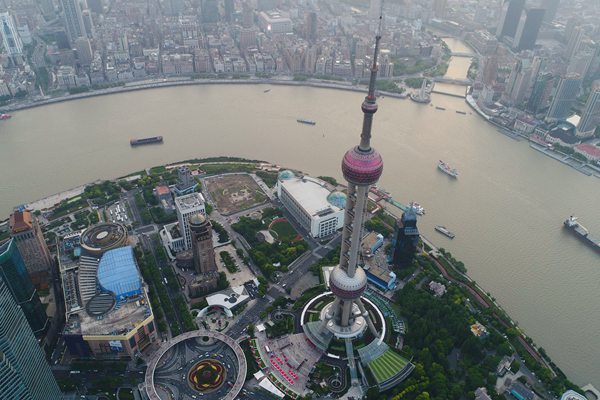Adjustments made to regulations in Pudong

Adjustments made to regulations in Pudong

[Photo/China Daily]
A slew of temporary adjustments to administrative regulations in the Pudong New Area, Shanghai, have been put in place and will take effect by the end of this year, according to a notice released on Aug 15 by the State Council.
The notice was based on an earlier official written reply from the State Council, China's Cabinet, to Shanghai's pilot plan furthering administrative reform in separating approvals for business certificates and business licenses, covering adjustments to regulations on medical devices supervision and feedstuff.
The second paragraph of the 34th article in the regulations on the supervision and administration of medical devices will be altered for the new area. Private medical institutions will no longer be required to get approvals before purchasing category B large medical devices in Pudong and the compliance oversight should be strengthened.
The first paragraph of the 15th article in the regulations on feedstuff and relevant additives will be modified. The previous administrative approval procedures and time limits for establishing enterprises engaged in the production of feedstuff additives and additive pre-mix feedstuff will be annulled. State Council departments and the municipal government of Shanghai were urged to modify related regulations and documents to be in line with these adjustments.
Plans on administrative streamlining issued
The State Council rolled out detailed plans on administrative streamlining and transformation of government functions on Aug 14 to fulfill the tasks set at the national teleconference on administrative reforms that aims to optimize governmental services.
The plan, consisting of 36 tasks, covers major issues such as canceling unnecessary administrative approvals, shortening times for necessary approvals, reducing registration times for business startups, and deepening tax reform for enterprises. With several specific measures under each item, the plan also assigns related departments to lead the implementation and supervision of each measure.
According to the plan, the time for setting up an enterprise will be reduced to eight and a half days by the first half of next year and further shortened to five days within five years. Reviewing construction projects and customs clearance will be reduced by half within five years. A unified nationwide negative list will be introduced this year, and the government will further cut taxes and fees to create a better business environment and promote efficient increases in private investment.
In addition, internet charges should be reduced by more than 30 percent this year, including the goal to cut family broadband charges by 30 percent for private users and 10 to 15 percent for small and medium-sized enterprises, the plan said.
It also aims to boost market vitality via administrative streamlining and delegating powers, promote social fairness through innovative management, and provide convenience by improving governmental services.
The State Council urged all departments and local governments to actively undertake their tasks, explore new models and practices, and strengthen coordination to better carry out the plan.
Fiscal roles in medical services specified
The fiscal duties of central and local governments in medical services have been specified in a notice released by the State Council earlier last week.
The notice defines duty reallocations in public health, medical insurance, family planning, and overall capacity building.
The public health sector consists of basic and major public health services. Central and local governments will pay for spending on basic public health services. All provincial regions are classified into five grades, for which the central government will contribute 10 to 80 percent of their expenses. Eastern regions will receive less fiscal support from the central government, while central and western parts of China will enjoy larger benefits in this field.
The central government will pay all spending on major medical services, including regular vaccinations, prevention and control of serious epidemics, HIV and tuberculosis.
The central and local governments will work together in providing financial subsidies for basic medical insurance as well as medical assistance. Medical assistance will be paid via transfer payments by the central government based on the needs and fiscal status of provincial governments.
Central and local governments will grant family planning subsidies for rural families to better help them improve their living conditions.
In addition, a host of improvements are planned for certain areas, such as the reform and development of medical institutions, the quality of health and hygiene work, administrative work on health and hygiene, medical insurance coverage and capabilities, and the development of traditional Chinese medicine.
Central and local governments will offer fiscal subsidies for strategic projects that aim to promote national health and hygiene work, and the development of traditional Chinese medicine.
MOST POPULAR
- 1 A look at China's economy in Q1 of 2024
- 2 China to remove foreign ownership restrictions in value-added telecom services in pilot areas
- 3 Query service of A Guide to Working and Living in China as Business Expatriates launched
- 4 Clear negative lists to speed up services trade
- 5 Canton Fair opens in China with surge in overseas purchasers
Editors' Picks
 Infographic:
How to understand China's production capacity
Infographic:
How to understand China's production capacity
 Infographic:
Milestones of China's journey to space
Infographic:
Milestones of China's journey to space





